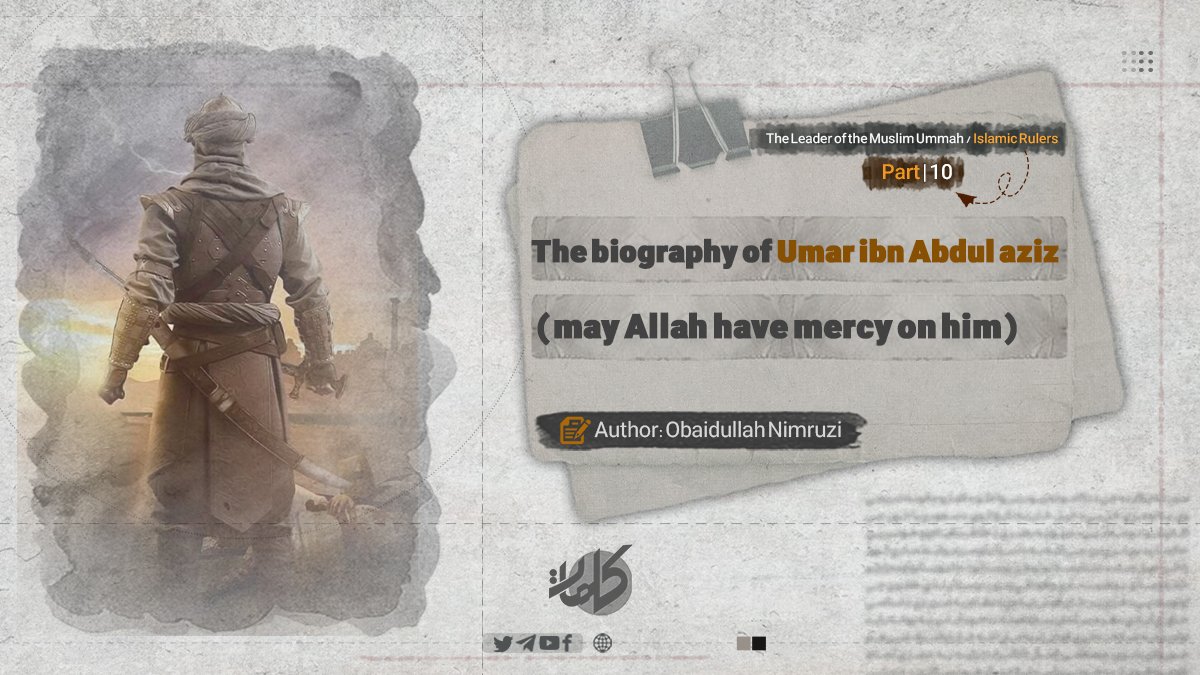
Author: Obaidullah Nimruzi
The Biography of Umar bin Abdul Aziz ‘may Allah have mercy on him’ (Part 10)
The Revolutionary Reforms of Umar ibn Abdul Aziz (may Allah have mercy on him)
In addition to adopting an ascetic lifestyle, caution, and piety, he completely changed the spirit of the government. His first fundamental change was that he altered the government’s perspective on all matters. Before his caliphate, a special department had been formed to collect and spend government taxes and tributes. That department had nothing to do with the morality, beliefs, character, upbringing, misguidance, and guidance of the general Muslim population, and its system revolved around this axis. He uttered a famous and historical statement: “Muhammad (peace and blessings of Allah be upon him) was sent to the world as a guide, not as a governor or a ruler.”
He changed the government’s perspective, transforming it from a worldly government into a caliphate of Prophethood. The entire period of Umar ibn Abdul Aziz’s caliphate was a practical interpretation of this principle. He always prioritized religious principles and ethics over royal interests and personal benefits. In return for religious benefit, he never paid attention to financial and state losses. During his caliphate, non-Muslim subjects (dhimmis) converted to Islam in large numbers, resulting in a decrease in the taxes collected from those who converted, severely disrupting the financial balance of the government. Government officials pointed out this danger and expressed concern. He said: “The conversion of non-believers to Islam was the main purpose of the mission of the Holy Prophet (peace and blessings of Allah be upon him)” and wrote to other tax officials: “I would be extremely happy if all non-Muslims converted to Islam and the revenue from the jizya stopped altogether, and you and I could sustain ourselves by farming and plowing the land.”
In Yemen, a certain amount of tribute was collected regardless of whether the farming was good or bad. The local ruler reported this practice, to which he replied: “The tribute should be collected according to the harvest, even if it results in only a handful of wheat from the entire region; I am satisfied with that.”
He completely exempted the country’s taxes and wrote to the officials that this was “bakh.” In this regard, the Quran instructs: «و لا تبخسوا الناس اشياءهم ولا تعثوا في الارض مفسدین»; “And do not diminish anything from the goods of the people, and you will not be among the corrupters on earth.” People accepted this by changing their names.
Except for a few permissible religious incomes, he completely exempted dozens of taxes and illegal government revenues that the rulers had imposed and created. He opened the sea and land routes and removed all kinds of controls—such as alcohol filters and unnecessary restrictions—from commercial travel.
He implemented reforms in Islamic territories that yielded very fruitful results and established uniform measures for business across the entire country, which were impossible to change.
He prohibited the trade of rulers and government officials and declared the exploitation of individuals by other individuals legally prohibited. He returned a large amount of royal lands and properties that previous emirs and kings had designated and allocated as hunting grounds or pastures for their families to the public treasury, stating: “This is the property of the people.” He forbade all government officials from accepting gifts and souvenirs, declaring: “What was once called a gift is now nothing but bribery.” He sent a circular to all government agencies to provide people with access without intermediaries. During the Hajj season, a public announcement was made that anyone who informed us of a certain person’s injustice or offered good advice would be rewarded with one hundred to three hundred dinars.
Continues…


